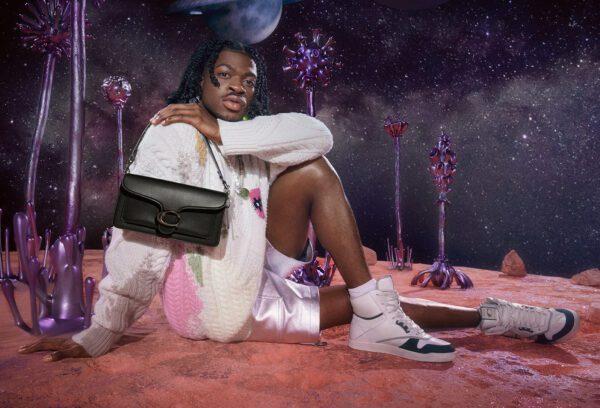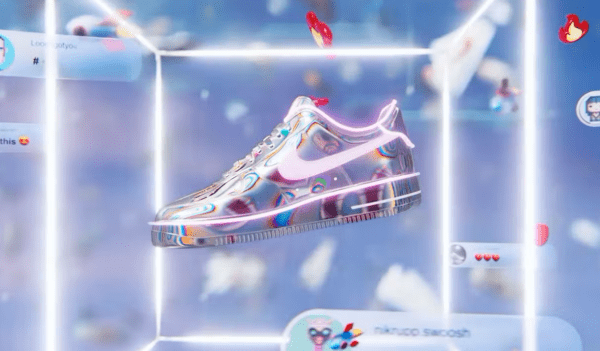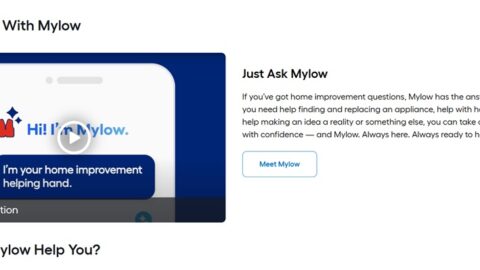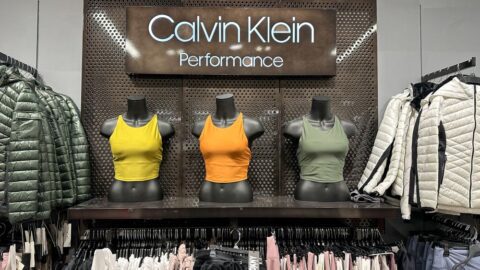Just one year ago the business world was ablaze with the potential of the metaverse — new virtual worlds and NFT launches were a seemingly daily occurrence as experts and evangelists envisioned a meta-future; one major tech company even rebranded to capture the movement. But then the economy took a turn, people regained the ability to interact in the physical world, ChatGPT debuted and the metaverse hype turned out to be just that, hype — mostly.
Anyone familiar with the Gartner Hype Cycle will realize that it’s after the initial hype fades that things start to get interesting, because as far as the metaverse is concerned we are entering the “Slope of Enlightenment.”
That was on display at last week’s second annual Metaverse Fashion Week in Decentraland, and can be seen in a number of other recent virtual brand excursions outside of the event as well. With profitability now the most pressing concern at most companies, metaverse vanity projects have gone by the wayside, and in their place are strategic virtual activations that incorporate elements of AR, 3D and yes even AI, but with a clear business intent. Recent examples from Coach, Clinique, Tommy Hilfiger, Nike, Aeropostale, Babylist and more showcase the ongoing potential of Web3-based brand activations to drive engagement, loyalty and sales.
If you’re ready to explore how to make the metaverse a strategic component of your business strategy, join us at the D2 Summit in Chicago, taking place alongside the Retail Innovation Conference and Expo June 13 to 15, 2023. Metaverse expert Cathy Hackl will be chairing the broader event. Registrants that secure their all-access pass to RICE by April 6 will save $700 on their ticket.
Coach’s Virtual Space Inspired by its Iconic Real-World Purse

For Metaverse Fashion Week, Coach hosted a pop-up party in Decentraland inspired by its Tabby handbag, just weeks after debuting a marketing campaign with a similar ethos dubbed “In My Tabby.” The goal of the campaign and the virtual experience was to celebrate fashion as a vehicle of self-expression.
The temporary virtual venue in Decentraland was shaped like a Tabby bag and visitors had the opportunity to meet the avatars of five artists who partnered with Coach to create original content championing self-expression. Each day of Metaverse Fashion Week, the interior of the pop-up venue changed to represent each artist’s unique inspiration, and visitors also had the chance to win digital wearables and join a dance party with a custom Coach emote (a programmable move that helps users express emotion in virtual environments).

Why it’s noteworthy: Linking the Decentraland experience to the marketing campaign’s theme highlights the potential of metaverse experiences to build brand loyalty and consumer engagement in larger branded activations. Not to mention the fact that the centerpiece of Coach’s Decentraland experience was a real bag that can be purchased IRL.
And this is only the tip of the iceberg when it comes to Coach’s plans for phygital experiences that drive loyalty. At the Retail Innovation Conference and Expo in Chicago this June, Coach executives will share more about their plans to capitalize on the convergence of digital and physical and the role Web3 will play in the future of the brand.
Get your all-access pass to the Retail Innovation Conference and Expo before April 6, 2023 and save $700!
Clinique Brings its Famed Beauty Counter to Customers Everywhere
Clinique is making its iconic beauty counter available to anyone, anywhere in the metaverse with a new virtual experience developed by Journee.

The virtual storefront, called Clinique Lab, features a photorealistic 3D environment that brings consumers right to the Clinique counter, where they can discover, interact, play, learn and shop. Visitors can create a custom avatar and explore this world through six unique zones, including product stories, gamification, personalized interaction with Clinique Consultants, unique offers and immersive on-site shopping.
Rather than taking place in one of the metaverse platforms, it is housed on Clinique’s own website, adding an element of play to the typical ecommerce experience and giving customers a unique way to learn about product ingredients, formulations, benefits and application techniques — as well as shop, of course.
“Unlike our retail stores, the Clinique Virtual Lab is an open world with no physical borders, offering endless possibilities in terms of design and storytelling,” said Charmi Panchal, Executive Director of Clinique Global Ecommerce in a statement. “We wanted to take our Clinique brand to a new dimension on a platform that encourages experimentation and creative freedom.”
Why it’s noteworthy: One of the key selling points of the metaverse is the democratization of access, and Clinique is leaning into that by bringing an experience that’s typically relegated to brick-and-mortar online. Housing the experience on the Clinique website and making it mobile- and tablet-friendly also means that loyal customers, even those not versed in metaverse platforms, have a chance to discover the virtual experience.
Another notable example of a brand using the metaverse to expand access is Babylist, which created metaverse versions of its LA and New York pop-ups last year for those not in the area, and plans to do the same for its first permanent flagship later this year.
Tommy Hilfiger’s Pioneering Multi-Metaverse Fashion Week Experience
While most metaverse experiences tend to focus on one platform for technical reasons, Tommy Hilfiger (owned by PVH Corp.) broke down those barriers with its Metaverse Fashion Week hub, powered by Emperia. The hub launched simultaneously across Decentraland, Roblox (designed by Sawhorse Productions) and Spatial, and tapped into the expertise of metaverse veterans DressX (digital fashions) and Ready Player Me (avatars).

The experience, which was housed in a structure made of the “TH” monogram, featured DressX-powered digital fashions, a collaboration with web3 artist Vinnie Hagar, AR features, a photo booth, gamification, emotes and a community-focused competition to create AI fashion. Most notable though was the interoperability of the experience, which allowed users to move seamlessly among different metaverse platforms and the retailer’s own website.
Four exclusive products, including the brand’s iconic varsity jacket, were presented in different aesthetic representations across all platforms and available for sale in two different forms: physical, via Tommy’s ecommerce site, and digital, via DressX. The varsity jacket also is available for sale in physical form via the Emperia hub, and the Ready Player Me platform is offering the digital version, which can be used in various games and environments, multiplying the interoperability of the virtual products.
Why it’s noteworthy: Tommy Hilfiger pushed the boundaries of what the metaverse could become, creating a connection not just between physical and digital but also across the various spaces where users engage in the metaverse today. While most experiences (and virtual products) are still necessarily tied to specific platforms, the possibility of creating fashions and avatars that can move across worlds will open up much larger opportunities for brands.
Nike’s Community-Centered Web3 Marketplace
Known as a first mover when it comes to new tech, Nike is staying true to its reputation with its endeavors in the metaverse. In addition to its Roblox environment, Nikeland, the company also has launched the digital community platform .Swoosh, where users can learn about and collect virtual creations like shoes and jerseys that can be worn in digital games and immersive experiences.

Nike plans to use the learnings and community feedback from the platform in the development of products, and images of the first of these — a .Swoosh Air Force 1 sneaker — were unveiled last month. Nike also plans to create community challenges wherein users can co-create virtual product with Nike, and community members will get exclusive access to offerings such as product releases and special events.
“We are shaping a marketplace of the future with an accessible platform for the Web3-curious,” said Ron Faris, GM of Nike Virtual Studios in a statement. “In this new space, the .Swoosh community and Nike can create, share and benefit together.”
Why it’s noteworthy: Virtual environments not limited by geography offer a powerful way to connect with and nurture brand fans, and offer them the chance to participate in the brand in a way that isn’t possible in the real world.
Aéropostale’s Detailed Web3 ‘Roadmap’
Aéropostale (owned by Authentic Brands Group) has laid out a detailed Web3 roadmap that will be implemented in partnership with MetaversePlus, consisting of four phases that will include immersive shopping, socializing and gaming experiences.

The first phase, which launched on March 23, 2023, saw the release of a collection of 30,000 one-of-a-kind “AeroPax” NFT avatars. Each avatar features a unique blend of traits, styles, personalities and abilities, including rare perks such as the chance to be featured on one of the brand’s digital channels. Each AeroPax is owned by the user that buys it and will act as the user’s avatar as well as their digital access pass to virtual worlds, including the forthcoming metaverse AeroWorld. Additionally, all AeroPax purchases include a limited-edition real-world hoodie.
Phase two of the rollout will offer fans a sneak peek into AeroWorld, where users will be able to claim unique avatar characters, access virtual and IRL experiences and collect in-game points, which can be redeemed for exclusive AeroPax merchandise and other perks. Details of phases three and four have yet to be revealed.
“Through this partnership, we aim to make Aéropostale a leading brand in the Web3 space and help shape the future of community and customer engagement in the virtual world,” said Naushaba Moeen, EVP of Lifestyle at Authentic in a statement.

Why it’s noteworthy: Aéropostale’s plans bring together everything young consumers love — opportunities for connection, self-expression (both online and IRL) and insider access. While older consumers may not care about these kinds of digital offerings, younger consumers are clamoring for them, which is why Gen “Zalpha”-focused brands like Aéropostale are frequently the ones pioneering what the metaverse can be. For example, Claire’s Shimmerville experience in Roblox focuses on self-expression and features a range of avatar accessories that can also be purchases IRL. Forever 21 also offers a range of digital fashions for Roblox users, and late last year it created a real-world fashion collection inspired by its best-sellers on the platform.
Explore how to make the metaverse a strategic component of your business strategy at the D2 Summit in Chicago, taking place alongside the Retail Innovation Conference and Expo June 13 to 15, 2023. Metaverse expert Cathy Hackl will be chairing the Summit and registrants that secure their all-access pass to RICE by April 6 will save $700 on their ticket.













